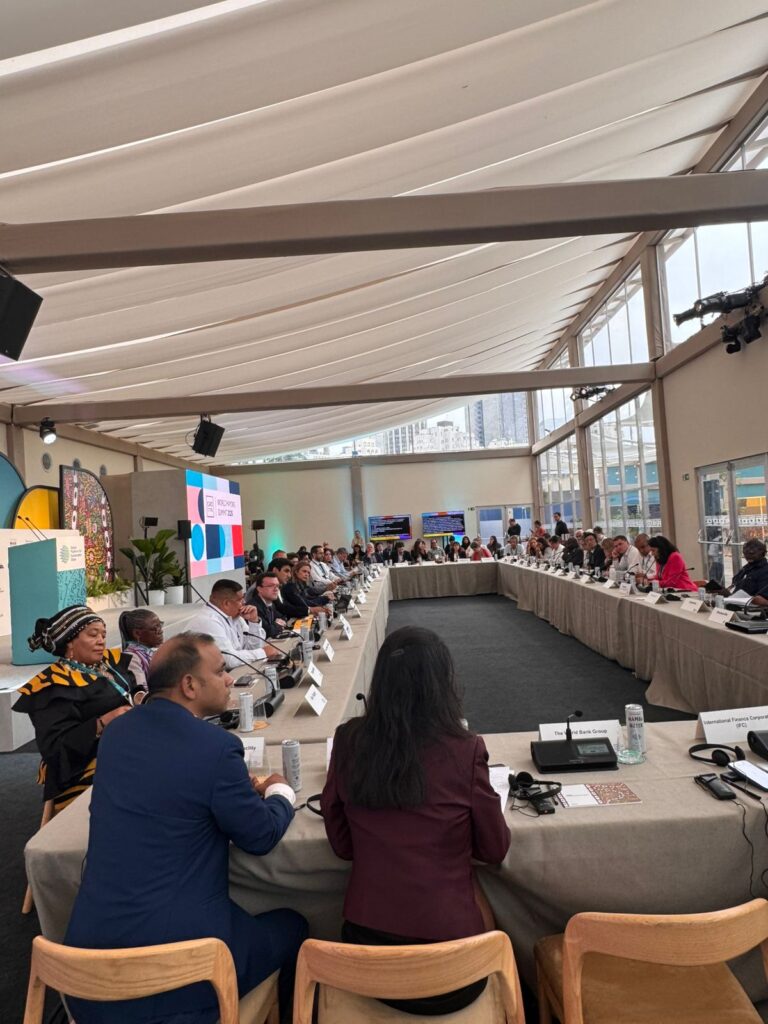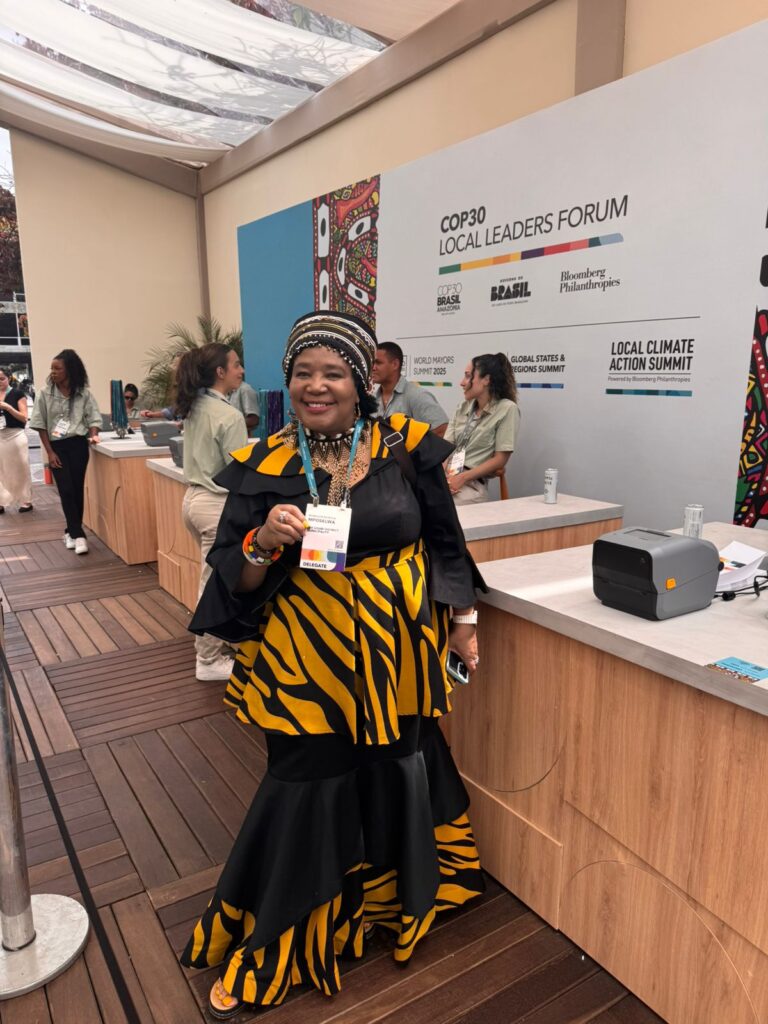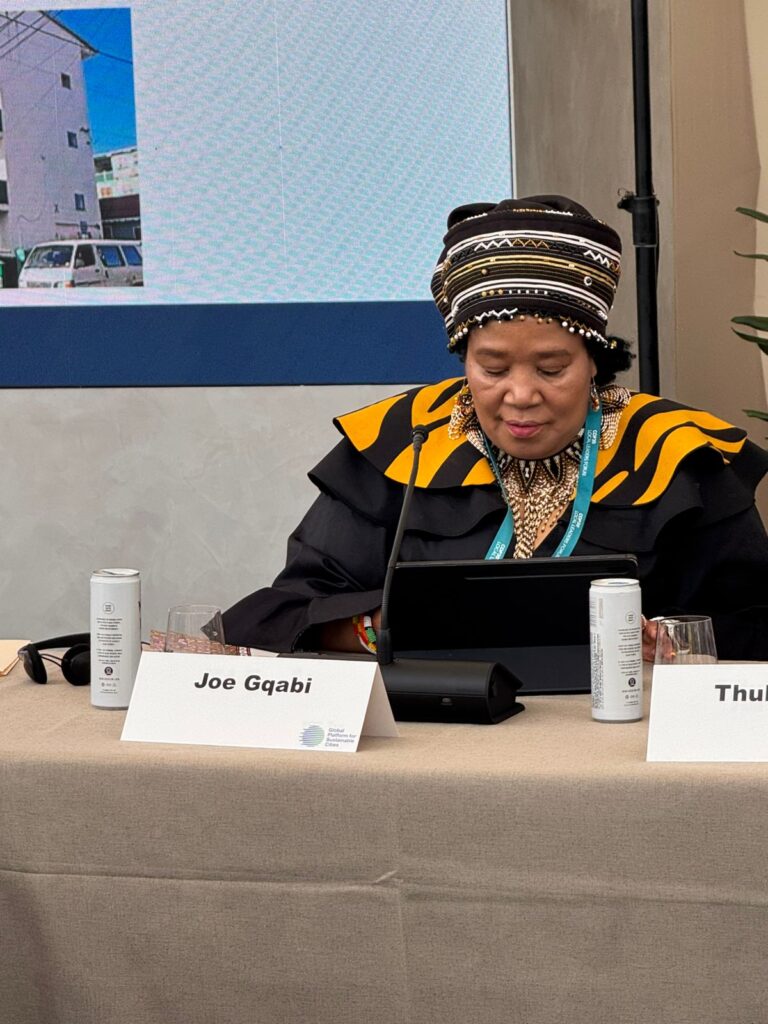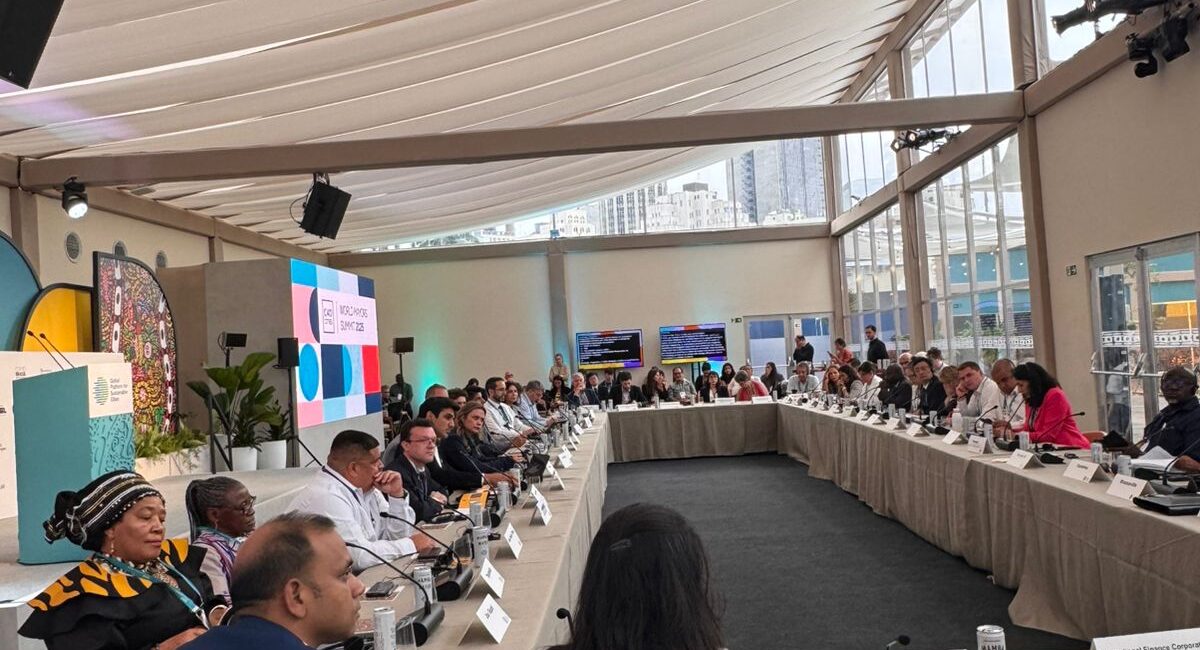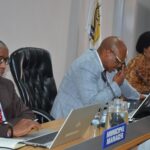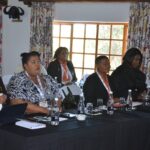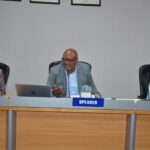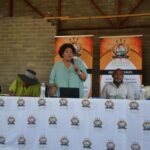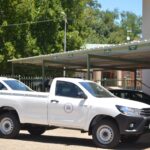The Executive Mayor of the Joe Gqabi District Municipality, Councillor (Cllr)Nomvuyo Mposelwa, attended the Global Platform for Sustainable Cities (GPSC) Mayors’ Roundtable, held at the Modern Art Museum in Rio de Janeiro, Brazil, on 5 November 2025.
Jointly organised by the World Bank and the International Finance Corporation (IFC), the Roundtable brought together mayors, city leaders, and international partners from across the world under the theme “Commitment to Urban Sustainability.” The dialogue served as a platform for sharing best practices and identifying innovative financing solutions to support sustainable and resilient urban development. The event also marked the official launch of the GEF-8 Sustainable Cities Integrated Program.
During her participation, the Executive Mayor shared the Joe Gqabi District Municipality’s integrated approach to sustainability – a model that embeds climate resilience and environmental stewardship across all planning and service delivery functions.
“Our approach seeks to align service delivery with resilience, equity, and environmental stewardship. In Joe Gqabi, sustainability is not a standalone agenda, it is how we do business,” said Mposelwa.
She cited the long-term development plans at Aliwal North Wastewater Treatment Works as a flagship initiative demonstrating this approach. The project aims to reuse treated effluent for irrigation and industrial purposes, and reduce both operational costs and emissions, while creating local jobs and improving water security.
Mposelwa further highlighted the critical challenge of financing sustainable infrastructure in small and rural municipalities.
“As a largely rural district, our greatest challenge remains securing sustainable infrastructure financing. We therefore seek innovative financing partnerships, including concessional loans, project preparation facilities, and green bond collaborations to scale up our sustainability projects,” she explained.
Participating in a session focusing on options for sub-national financing, the Executive Mayor joined global peers and development finance institutions in exploring mechanisms to unlock funding for local sustainability projects. She emphasised the importance of inclusive access to climate and green finance.
She cited the Elundini Rural Water Supply ORIO Programme, funded by the
Netherlands government, as one such sub-national funded project that is expected to provide water infrastructure to 15 villages and over 500 households including Elalini, Cicira, Gqaqhala, and others.
“Unlocking sub-national financing is not just about capital, it is about inclusion. Rural and small municipalities must be part of the green transition if we are to achieve equitable and sustainable development globally,” she concluded.
The GPSC Mayors’ Roundtable convened over 16 city leaders and representatives from multilateral development banks and international organisations, including the World Bank Group, Development Bank of Southern Africa (DBSA), United Nations Environment Programme (UNEP), and the Global Environment Facility (GEF).
